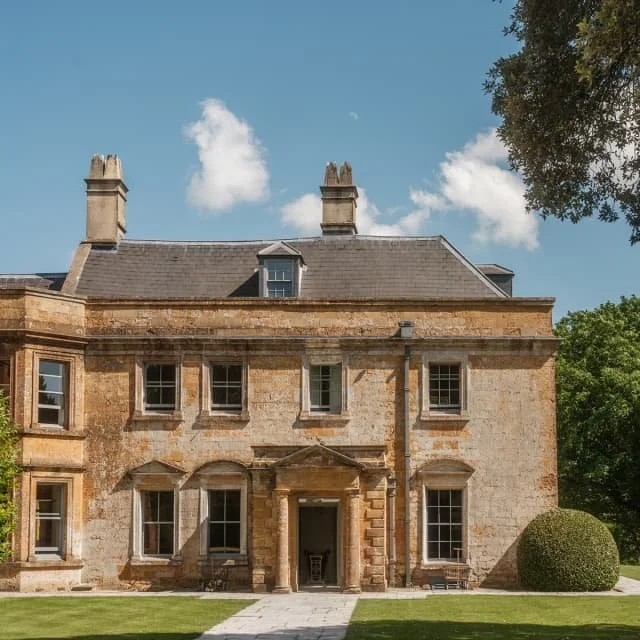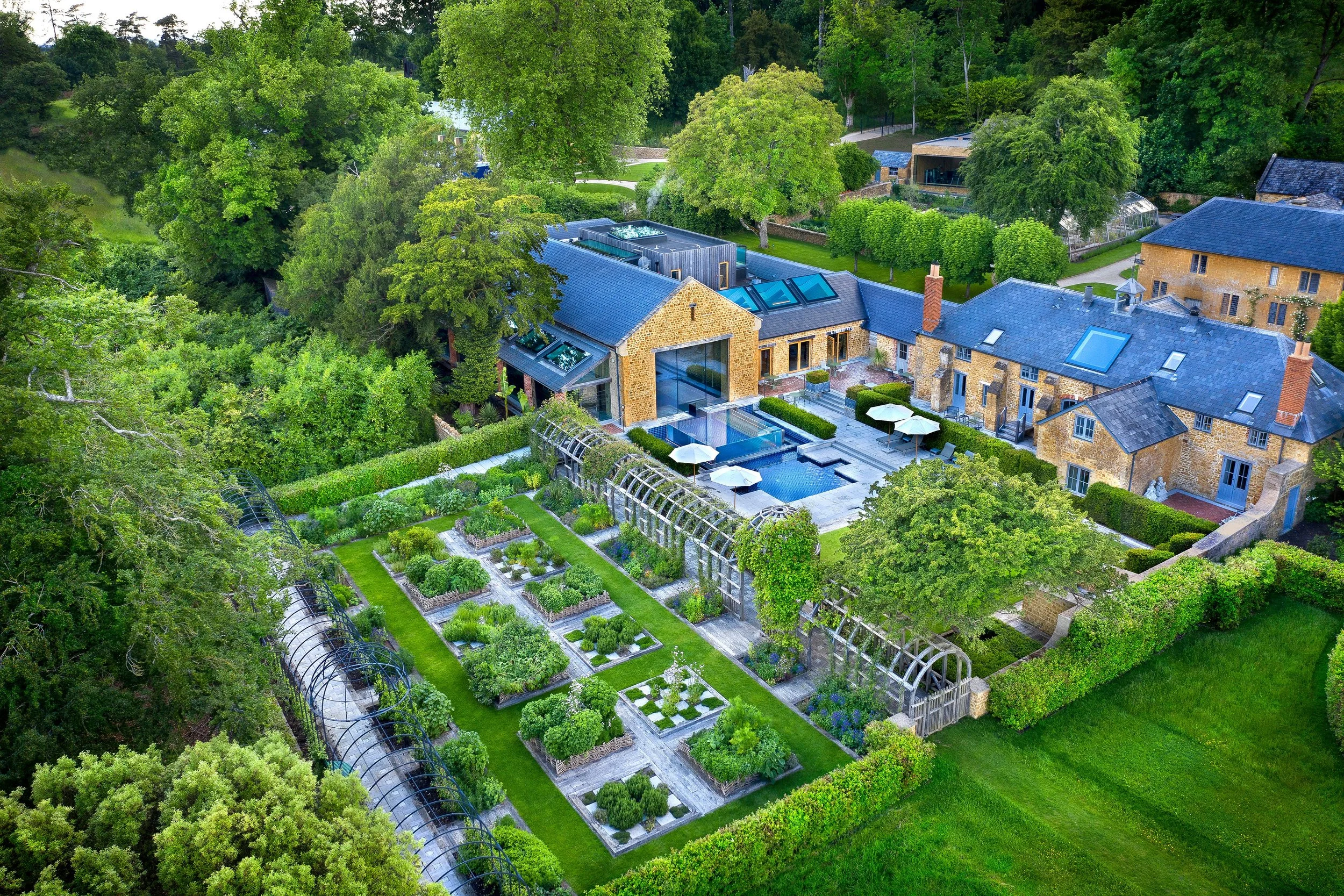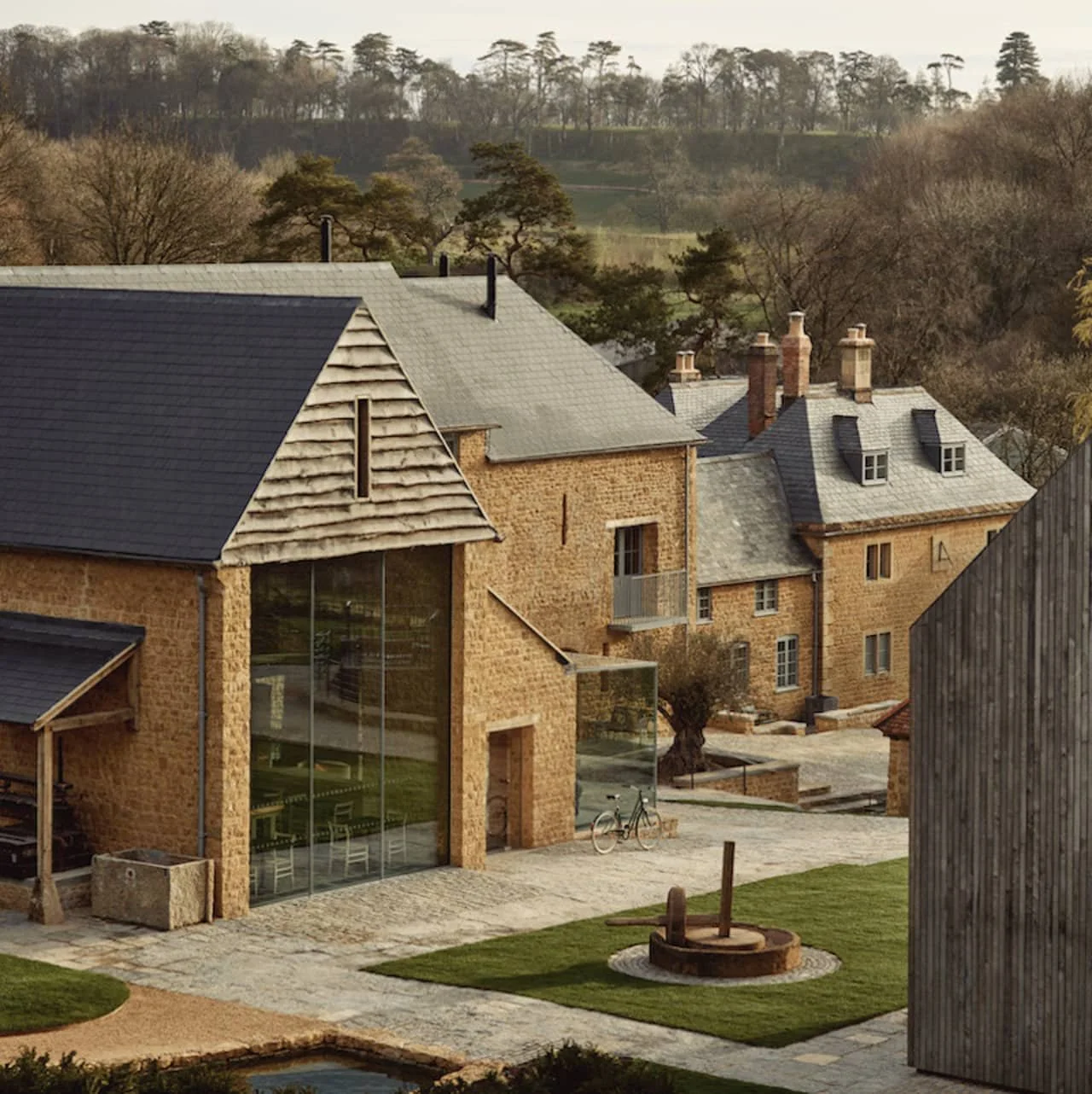THE NEWT IN SOMERSET
THE NEWT IN SOMMERSET
Redefining the English Country Estate
There are few places in England where past and present blend as seamlessly as at The Newt in Somerset. Set on the historic grounds of Hadspen House, this estate has been transformed into one of the most ambitious and imaginative hospitality projects of the last decade. It is not simply a country hotel with manicured gardens. It is an entire ecosystem where history, horticulture, architecture, and gastronomy converge to create an experience that is as educational as it is indulgent.
A vision rooted in detail
The transformation began in 2013, when South African entrepreneur Koos Bekker and his wife Karen Roos acquired Hadspen House. Both were already known for their work at Babylonstoren, a celebrated wine and farm estate outside Cape Town. In Somerset, they saw the chance to apply the same philosophy on English soil: creating a destination that is not just a retreat but a living landscape, where everything from the architecture to the cider pressing is connected by narrative and detail.
Their vision was uncompromising. Instead of simply polishing the Georgian manor into a boutique hotel, they chose to expand the estate into a cultural universe. The Newt today spans over 360 hectares and encompasses working farms, orchards, museums, reconstructed historical sites, architectural experiments, and accommodation that redefines the idea of rural luxury.
The gardens as theatre
At the heart of the estate lie the gardens, designed by French architect and gardener Patrice Taravella. They are not conceived as static backdrops, but as living theatres of horticulture. The Parabola, perhaps the most striking element, is a walled garden planted with more than 250 varieties of apple trees arranged in a spiraling maze. It is both beautiful and purposeful: the apples are harvested for cider, the cider pressed on site, the bottles served in the restaurants and bars.
Every garden on the estate is designed with this philosophy of dual purpose. Ornamental beauty meets agricultural function. Guests stroll through spaces that are not only visually extraordinary but also deeply instructive. One leaves The Newt with the sense that gardening is not a luxury pastime but a profound dialogue between people, plants, and time.
The Story of Gardening
To make this philosophy explicit, Bekker and Roos created The Story of Gardening, a museum dedicated entirely to the cultural and historical significance of gardens. From the outside, the museum is almost invisible, its mirrored façade blending into the woodland. Inside, it offers one of the most immersive experiences of its kind. Interactive exhibits, tactile installations, and virtual reality headsets guide visitors through centuries of horticultural history. You can stand, virtually, inside the Boboli Gardens in Florence or the Alhambra in Spain, all while physically remaining in Somerset.
The museum is complemented by the Viper, a treetop walkway that begins on its roof and winds through the forest canopy. It is an architectural gesture that perfectly encapsulates The Newt’s ethos: movement through the estate is never just functional, it is experiential, designed to heighten awareness of the land and its stories.
A Roman villa reborn
Perhaps the boldest project on the estate is Villa Ventorum, a full-scale reconstruction of a fourth-century Roman villa that once stood on the property. Completed in 2022, it is more than a historical replica. Every detail has been researched and executed with archaeological precision, from the mosaics to the hypocaust heating system. Visitors do not simply view the villa as a museum piece; they walk through kitchens with fire pits still glowing, sit in dining rooms furnished as they would have been in late antiquity, and wander gardens planted with the same herbs and vegetables the Romans would have used.
This is heritage turned into lived experience. By making history sensorial, by bringing in sound, smell, and taste. The Newt succeeds in creating an emotional connection that conventional museums rarely achieve.
Hospitality without excess
For all its cultural depth, The Newt is also a hotel. Guests can stay in the Georgian manor or in the Farmyard, a collection of converted barns and stables that balance rustic character with contemporary refinement. The interiors are restrained, natural, and tactile. Linen, wood, and stone dominate, giving each room a sense of place that avoids the clichés of “country chic.”
The spa follows the same philosophy. Treatments draw on herbs and botanicals grown on the estate. Pools flow seamlessly between indoors and outdoors, echoing the rhythm of the land itself. Dining is equally grounded: seasonal menus are built around produce from the gardens and fields, while the orchards supply the estate’s celebrated cider. Here, luxury is not imposed but cultivated, grown quite literally from the soil beneath your feet.
Experiences that never end
Part of what makes The Newt extraordinary is the sheer range of activities available. Guests might begin their day with a guided garden tour, then join a cider-making workshop, followed by a walk through the deer park. Beekeeping sessions, foraging expeditions, and drystone walling courses connect visitors to crafts and skills that are often overlooked in modern life. Seasonal festivals, from apple harvests to Roman celebrations, punctuate the calendar. Even a single-day visit feels layered and rich, unfolding new perspectives at every turn.
Why it matters
What makes The Newt so special is not any single attraction but the totality of its vision. Every detail, from the planting of an orchard to the design of a treetop walkway, is considered part of a larger story. It is hospitality as curation, where guests are not passive consumers but participants in a continuous unfolding of history, culture, and landscape.
In an era where many hotels compete on superficial luxury, ever larger spas, ever more polished interiors. The Newt has shown another way. It demonstrates that guests crave authenticity, depth, and education just as much as they crave comfort. It has become a case study in how hospitality can be transformative when it refuses to compromise on detail and when it treats the land itself as the greatest luxury.
A model for the future
For hoteliers, developers, and designers, The Newt in Somerset offers a clear lesson: the future of hospitality lies not in generic opulence but in meaningful experiences rooted in place. It is a reminder that luxury can be understated, that history can be lived rather than displayed, and that even the smallest detail, an apple in an orchard, a herb in a spa treatment; can become part of a larger story.
The Newt is not just a hotel or a garden. It is an argument for what hospitality should be.




